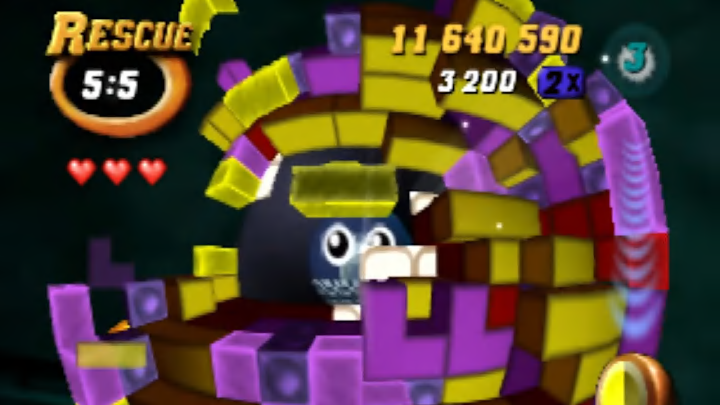Henk Rogers really doesn’t want another Tetrisphere

You’ve probably heard of Henk Rogers — he’s the guy who discovered Tetris on the show floor of a Las Vegas trade show and rushed to exclusively license the game. He’s the reason Tetris is a household name today, and he’s still technically involved with the game, through his and Tetris creator Alexey Pajitnov’s company, The Tetris Company, though most of it is now handled by his daughter.
Over the years, The Tetris Company has garnered a bit of a reputation as a strict licensor — it doesn’t want the Tetris name on any old thing, and its licensees are held to strict standards. The gameplay has to be largely the same, no matter what you’re doing with it, and ideally the user interface and player input would be similar across every iteration, too.
This strictness is enforced by Rogers and Pajitnov, who both have final say over whether or not a game or product is fit to bear the Tetris name. While Rogers’ daughter is running the day-to-day of the company, every single contract still goes over his desk, and he has high standards for the brand. And that’s all because of a little game called Tetrisphere, which as Rogers tells it, was the one game that slipped through the cracks.
Tetrisphere was a Nintendo 64 game developed by H20 Entertainment and published by Nintendo itself. It was an officially licensed Tetris game, but it definitely was not Tetris. Instead, it had players dropping curved Tetris blocks onto a sphere, and when three of the same type of block touch each other, they’re cleared. It’s a fun game, with a clever premise and great music, but again, it’s not Tetris, and according to Rogers, it breaks the cardinal rule of Tetris.
“The one time we let it slip through was Tetrisphere,” Rogers tells me in an interview on the floor of Gamescom Latam in São Paulo, Brazil. “Sorry, that is not Tetris, and it breaks the cardinal rule of don’t hide any pieces from the player. A casual gamer cannot play a game where the pieces disappear or are hidden behind something. It’s like watching a soccer game and then all of a sudden everybody runs through a tunnel and then they come back. What happened?”
Since then, Rogers and Pajitnov have made it a policy to make sure they personally go eyes-on with everything that’s going to be branded with the most famous name in gaming. There are other rules, too — sex, violence, war, and politics are not allowed in a Tetris game. “Let the game be the game,” Rogers told me.
That strictness, as Rogers tells it, is part of the reason Tetris is still around. He likens it to Nintendo’s strict guidelines around Mario, or Disney’s strict guidelines around Mickey Mouse, with the latter mention coming alongside a very funny observation.
“Disney will make sure you don’t mess with Mickey Mouse,” Rogers says. “There are no butt shots of Mickey Mouse ever. He doesn’t have one. That’s because they won’t put Mickey Mouse’s butt in any picture.”
feed
Disclosure: Oliver Brandt attended Gamescom Latam as a guest of Abragames, with flights and accommodation provided by the organization.